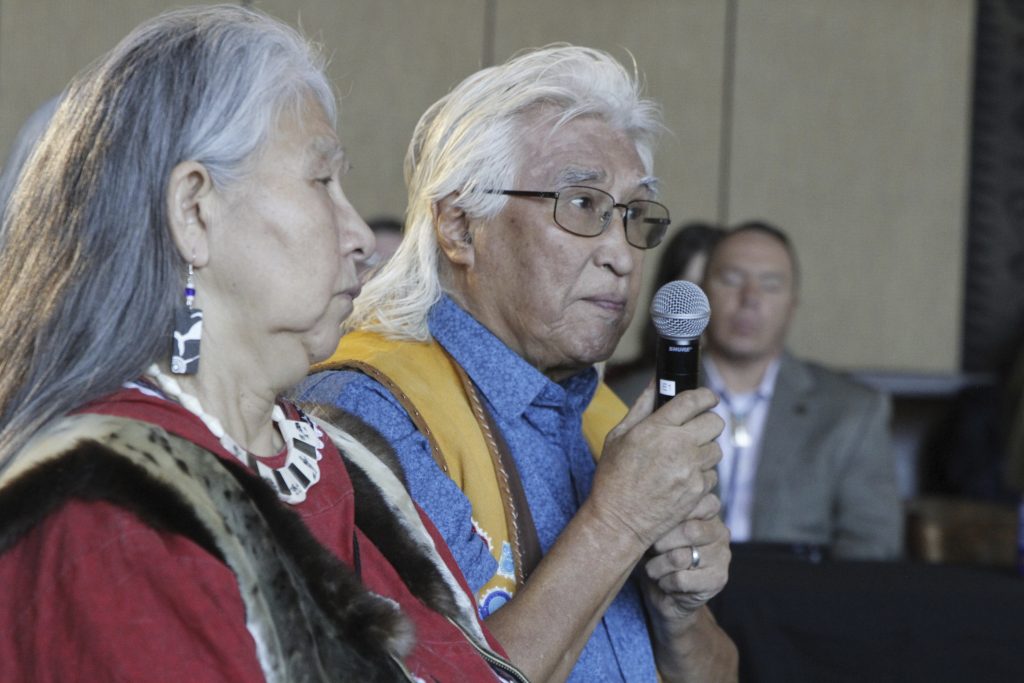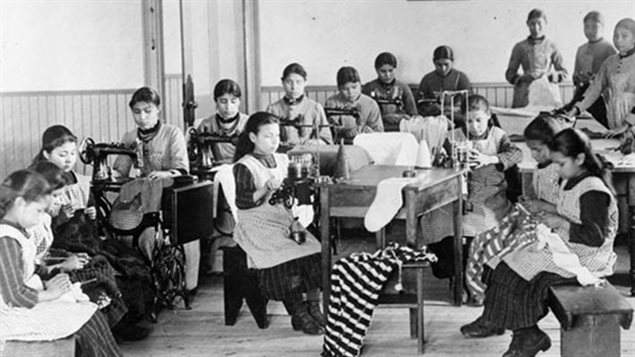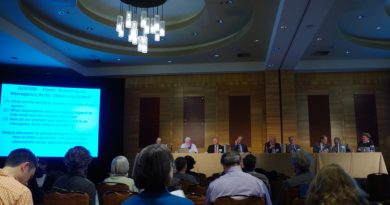“This isn’t just about Native people, this is about America,” say truth commission advocates

The recent decision by the federal agency responsible for preserving the nation’s history to endorse a commission on the country’s former residential school system is another important step towards reckoning with the institutions’ legacy, according to the U.S. National Native American Boarding School Healing Coalition (NABS).
“To have a federal agency, responsible for the nation’s historical resources, support and endorse this law really shows how significant and how important this is,” Theresa Sheldon, NABS director of policy and advocacy, said in a phone interview.
“This isn’t just about Native people, this is about America, and that all American citizens should understand the true history of our country.”
Commission would examine assimilation policies
The Advisory Council on Historic Preservation is the U.S. federal agency in charge of historical preservation and also provides advice to the President and Congress on related policies.
Earlier this month, they gave unanimous approval to Senate Bill 1723 The Truth and Healing Commission on Indian Boarding School Policies Act.

Much in the way Canada’s Truth and Reconciliation Commission looked at the residential school system in Canada, Senate Bill 1723 would set up a six-year commission to examine the legacy of the Indigenous boarding school system in the U.S.
“The Advisory Council reaffirms our commitment to American Indian, Alaska Native, and Native Hawaiian people through our support of this proposed law, which would recognize the intergenerational trauma experienced by too many and would help us move toward healing,” Sara C. Bronin, the Chair of the Advisory Council on Historic Preservation, said in a statement on Tuesday.
“Beyond this piece of legislation, we will continue to [work with federal agencies and other partners to] ensure that we recognize and honor the sovereignty of Tribal Nations and the knowledge and history of all Indigenous peoples through our policies and practices.”
Indian boarding school system in the U.S.
The U.S. Federal Indian boarding school system ran from 1819 to 1969 and included 408 federal schools. This system aimed to suppress Indigenous languages and assimilate children into the dominant culture, often accompanied by reports of abuse.
In 2021, Secretary of the Interior Deb Haaland initiated the Federal Indian Boarding School Initiative to confront the enduring impact of these schools. The department conducted an investigative report, delving into historical records and documenting school sites.

She also launched the “The Road to Healing” tour in response to suggestions from the report which involved travelling the U.S. to collect stories from former students and their families.
Sheldon said the Department of Interior’s Federal Indian Boarding School Truth Initiative was an important building block in the healing process, but a commission is needed for its subpoena powers and ability to access records from all levels of government.
” [Haaland] is the first Native American serving in the Department of Interior and her work has been absolutely historical and not done before,” Sheldon said. “[The commission] would start from what she has done and go further.
“The Department of Interior is high level but the Federal Commission would be able to get into the nuance of going after every document for every single boarding school and really dive deeper into the records. Those records are a major tool to understand everything that went on and that’s something we learned from the Canada commission.”
The Truth and Reconciliation Commission in Canada
The legacy of residential schools in Canada traces back to the 1800s when Inuit and First Nations children were sent to federally funded, largely church-run institutions with the aim of assimilating them into western culture. With over 130 such schools scattered across the country, more than 150,000 Inuit, Métis, and First Nations children are believed to have been part of the residential school system, which persisted until the closure of the last institution in 1998.
As part of the Indian Residential Schools Settlement Agreement, established to assist former students, the Truth and Reconciliation Commission was established to examine the legacy of the institutions.
The commission ran from 2008 to 2015.

Throughout the commission, survivors shared stories of abuse and the enduring negative impacts of being separated from their language, culture, and families. The final report of the commission included 94 calls to action.
Established in 2012, NABS was created, in part, to champion the creation of a federal commission addressing U.S. Indian Boarding Schools, drawing inspiration from Canada’s Truth and Reconciliation Commission focused on Residential Schools.
Commission’s focus
The commission created under the The Truth and Healing Commission on Indian Boarding School Policies Act would focus on several areas including: collecting testimonies, documenting ongoing impacts on survivors and their families, identifying all records related to the schools and their operations, documenting grave sites and creating recommendations.
After its introduction, Senate Bill 1723 must secure approval from the House Committee on Natural Resources before going to the House for vote.
Comments, tips or story ideas? Contact Eilís at eilis.quinn(at)cbc.ca
Related stories from around the North:
Canada: “We still have a lot of healing to do with our fellow Canadians” – National Day for Truth and Reconciliation observed September 30, Eye on the Arctic
Finland: Sami Parliament in Finland agrees more time needed for Truth and Reconciliation Commission preparation, Eye on the Arctic
Greenland: Danish PM apologizes to Greenlanders taken to Denmark as children in 1950s, Eye on the Arctic
Norway: Can cross-border cooperation help decolonize Sami-language education, Eye on the Arctic
Sweden: New chairman appointed to Sweden’s Truth and Reconciliation Commission, Eye on the Arctic
United States: Alaska reckons with missing data on murdered Indigenous women, Alaska Public Media



